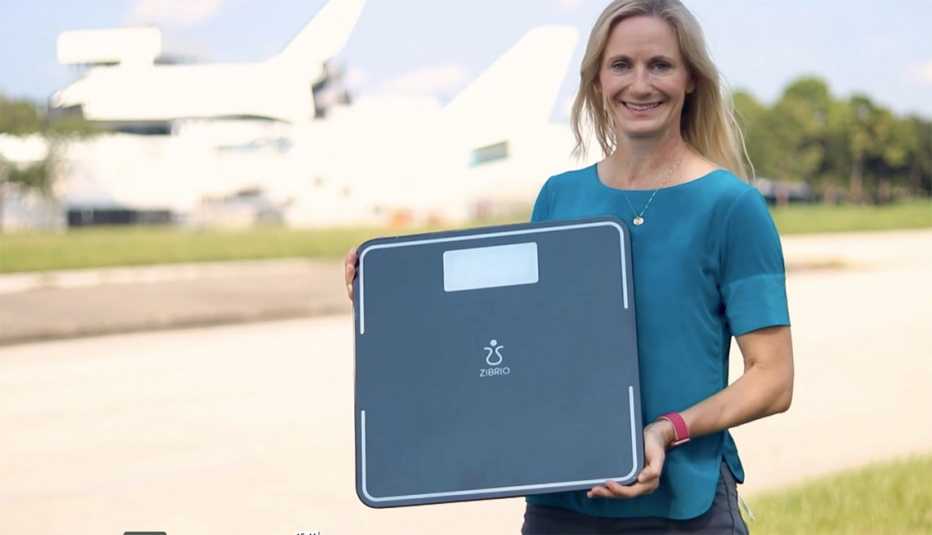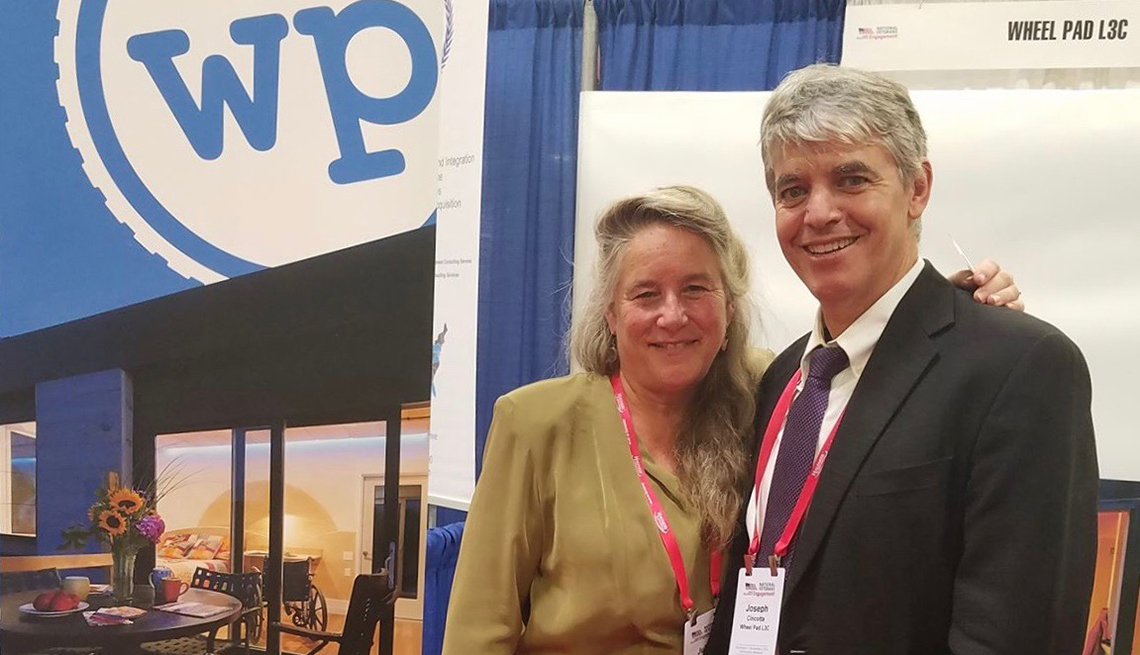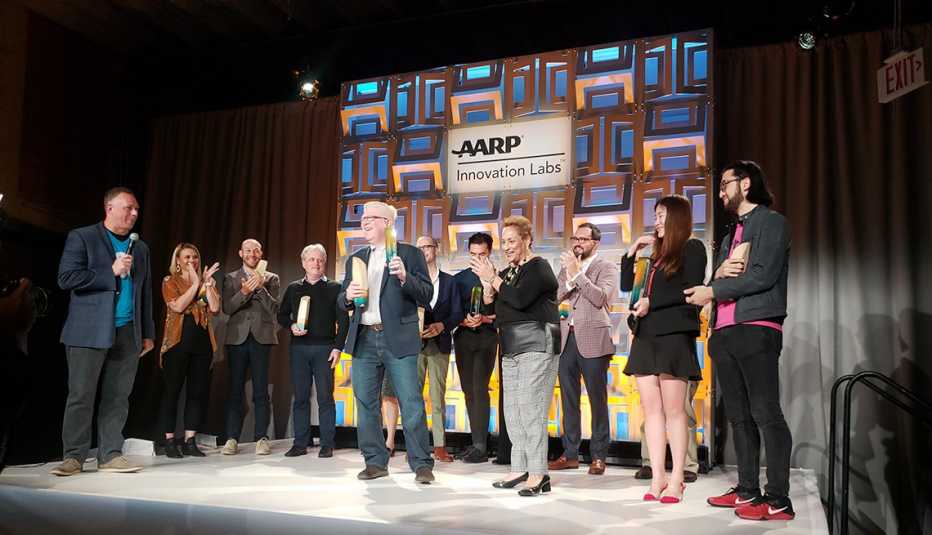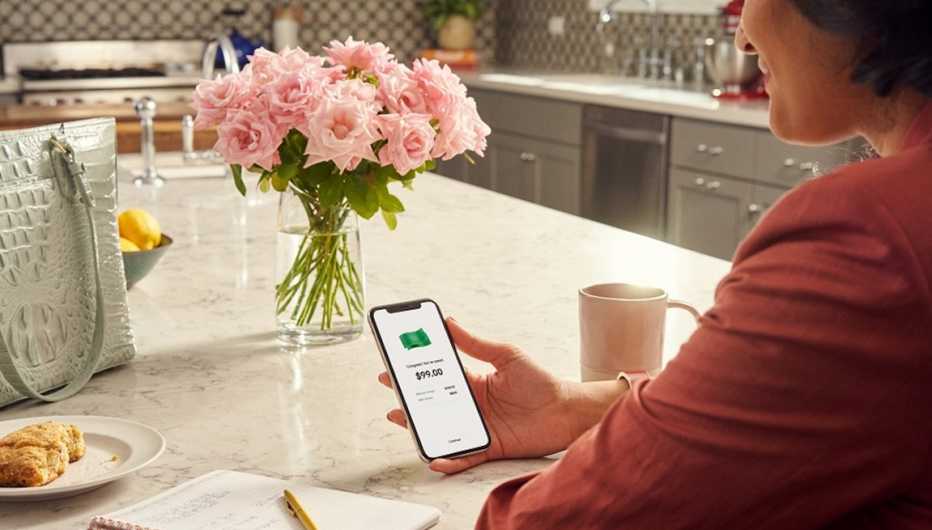Staying Fit
A company that produces prefab, accessible living spaces that attach to homes and the developer of tools that can assess the risk of falls won the AARP 2020 Grand Pitch Finale Thursday, beating out six other start-ups in a nationwide innovation competition.
Wheel Pad L3C received $10,000 for winning an audience vote among eight start-ups in the competition, while Zibrio was named a winner by a panel of judges. All eight finalists won preliminary competitions this year, most of which were held virtually because of the coronavirus pandemic.


AARP Membership— $12 for your first year when you sign up for Automatic Renewal
Get instant access to members-only products and hundreds of discounts, a free second membership, and a subscription to AARP the Magazine.
Wheel Pad produces accessible working and living space for people with mobility issues. Many of their prebuilt units are designed to attach directly to an existing house, helping to keep families together in both temporary and permanent situations.
Architects Julie Lineberger and Joseph Cincotta, a Vermont couple, founded Wheel Pad after their godson was injured in an accident and left a quadriplegic. They decided to form the company when he couldn't find accessible housing. Wheel Pad received a $10,000 AARP grant after a business plan competition in 2015, and the company was born.
"The idea is just that people with mobility issues can use it easily. It's there for their living,” Lineberger said.
As an L3C, or low-profit limited liability company, Wheel Pad is a cross between being a nonprofit and for-profit firm. “This is not for us to make a killing,” Lineberger said. “This is for us to create a service, pay people decent salaries, but not to gouge people. It's really to be beneficial, to keep families together."
The company is expanding into detached “tiny houses,” again offering mobility features including easily accessible beds (traditional tiny houses often put beds in lofts). “We've had a lot of calls from people, especially with spinal cord injuries, who don't want to be attached to their parents anymore, but they want to be close by,” Lineberger said.
The COVID-19 pandemic has created new demand for the company's products, as families look for ways to move relatives out of nursing homes without losing space in their houses. By attaching one of the company's units to their homes, owners can create an accessible living space within weeks, depending on permit issues, Lineberger said. The arrangement can save a family $2,500 a month over nursing home care, according to the company's calculations.


Predicting balance issues
Zibrio produces a scale and an app to help measure and predict someone's balance, in part using an algorithm first developed 14 years ago for NASA astronauts.
"When we created this very sensitive algorithm to predict falls, we knew how valuable it would be to people here on earth,” said Zibrio CEO Katherine Forth, a former NASA scientist who worked on that effort. “We've been doing 14 years of research from that point,” including clinical trials.
A person's balance changes “every single day,” Forth said, and it should be thought of as a measurement similar to blood pressure. “It changes. We need to know where we are,” she said.
The scale and app provide a fall risk score and an improvement plan to reduce that risk. It can provide projections over more than 30 years, helping people plan and take action, she said. “There's many applications in the clinical and consumer realm, and we have the expertise and the knowledge to communicate that."
Both companies are pushing to grow. Zibrio is launching its product to the public on Oct. 29, and Wheel Pad is looking for its first round of outside investor funding.
The other finalists in the competition were: Trusty.care, an online platform aimed at financial professionals that helps identify cost-saving insurance and benefit options for older adults; Gennev, which offers online health services for women in the second half of their lives; SmartyPans, which produces sensor-enabled cookware to improve health and wellness; Reclaim Health, a health care cost management service for individuals; NuEyes Technologies, which provides augmented reality and virtual reality glasses for people with visual impairments; and LVNG Book, which produces customizable cookbooks to help people with chronic health conditions manage their diets.
The competition is in its third year and is designed to find innovative solutions to empower people to live how they want as they age. Last year's winner was Sunu, a company that created a wristband that uses sonar to help people who are blind or have low vision.




































































